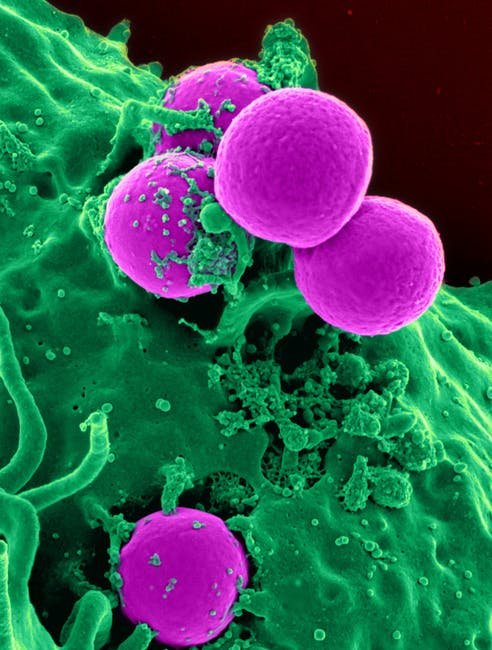Long Term Side Effects Of Intermittent Fasting: A Review
I love intermittent fasting and have been using it since I first discovered it at 17. I’ve tried all the protocols; 16:8, Eat Stop Eat, just skip breakfast…the list goes on. I have found that the best protocol to use is a sort of just skip breakfast bastardisation of the 16:8 method. This blog will give a complete review of intermittent fasting as well as cover the long term side effects of intermittent fasting.
I recommend checking out this guide to intermittent fasting, as if you don't follow the best practices, you may fall into binge eating, incorrect restriction diets and subsequently miss out on the health benefits.
LET’S TALK ABOUT INTERMITTENT FASTING
Basically, just aim to break your fast around 1pm-2pm every day and you’ll end up pretty much adhering to a 16 hour fast each day without being anal about things. Anyway, this post isn’t about the hows of fasting, it’s about the whys and why exactly you should be using it. Here are 10 the side effects of intermittent fasting that you need to be aware of.
CELLULAR REPAIR (AUTOPHAGY)
First of all, for those who don’t know what autophagy is – it’s basically the way your cells repair themselves. In its simplest form, your body eats itself to prevent cellular damage accumulation. “What are you on about and why is this good for me?” I hear you shouting from the rooftops.
Well, because autophagy is your body’s way of keeping you young, it is high in young people and lowers with age. Since fasting can increase these levels by up to 500% it would be wise to give it a go if your aim is to fight them wrinkles off for a few more years.
INCREASED INSULIN SENSITIVITY
Fasting has been shown as an extremely effective way of increasing insulin sensitivity which can improve results in the gym and can also have a controlling effect on type 2 diabetes.
Just make sure you don't forget to drink as this could lead to unhealthy long term effects, unhealthy weight loss or short term negative impacts.
INCREASED METABOLISM
Below is an infographic that highlights the problems with obesity. One way to tackle this is to improve your metabolism. Fasting has been shown to boost metabolism and aid in fat loss in numerous studies. If you’re looking to lose fat, this is an extremely handy tool to have in your arsenal.
INCREASED HUMAN GROWTH HORMONE
Studies have shown that after a short period of time whilst fasting, there is increased regular secretions of HGH throughout the day. This is good news if you’re looking to build muscle and optimise your hormonal health as higher HGH levels have been correlated with increased muscle mass and testosterone conversion.
CONTROL OVER HUNGER
One benefit that I have noticed is my ability to now differentiate actual hunger from perceived hunger and actually have control over my appetite. This has been shown to be the case time and time again in so many past studies, stating that improved ghrelin regulation are at the heart of this. Also, most of the time, hunger is just a mistaken feeling of thirst and so realising this helped me to differentiate between the two and stop gorging.
PROTECTS AGAINST CANCER
This one links in with the decreased insulin point above. Improved insulin sensitivity has been linked to reduced risks of several types of cancers. This is good news for us in the Western world especially, as our society and the famed ‘Western diet’ is one of the biggest causes of cancer we’ve ever seen.
IMPROVED COGNITIVE FUNCTION
The main way that fasting can improve cognitive function is via reduced oxidative damage in the brain. Oxidative stress in the brain is probably the biggest culprit for brain fog – something which we can all agree is extremely frustrating. Lowering this stress can help to not only eliminate brain fog but also to increase the production of brain-derived neurotrophic factor which is responsible for the growth of neurons within the hippocampus. Bit science-y but it’s all good stuff…promise.
LOWERED FOOD ANXIETY
One subjective improvement I noticed was much lower food anxiety. I used to be so anal about what I ate and did so much meal prep the mind boggles. Now I don’t have to think about eating for about 5 or 6 hours after I wake up, which frees my mind to concentrate on other things like writing, meeting deadlines or simply just zoning out and relaxing.
Fasting has given me so much perspective on my relationship with food and busted all the usual myths the fitness industry pedals such as “EAT 400 CALORIE MEALS EVERY 2 HOURS OR YOUR MUSCLES WILL SHRIVEL AND YOUR PENIS WILL FALL OFF”.
Having this insight has aided me in wading through all the BS and accelerated the rate at which I can now decipher the true from the false when it comes to fitness. Massive tangent of a paragraph but just some food for thought (no pun intended).
IMPROVED MEMORY
One extremely promising area of literature has explored the memory effects that fasting has on the human brain. It was shown that inducing a fasted state enhanced the ability of nerve cells to repair DNA, improving memory as well as a whole host of other areas of the brain.
Whilst this research is still quite new and technology still has a way to go to be able to accurately measure these sorts of things, it is very exciting to think such a simple thing can have such profound effects.
IMPROVED CONCENTRATION AND FOCUS
Finally, another cognitive benefit. Fasting can increase both concentration and focus. This may be part due to the improved quality of sleep that fasting brings. An interesting side-note, a study on soldiers who fasted before flying to a foreign country were better able to combat the effects of jet-lag than those who didn’t which may suggest that the regulation of sleep, concentration and wakefulness are all inter-connected.
Whilst all these benefits are great and I do advocate using intermittent fasting all the time, there are obviously occasions where fasting is not an option – think family breakfasts or holidays. As long as you are fasting more often than not (i.e. most of the days per week), you will most likely experience the majority of these benefits and maybe more that aren’t listed, without the negative side effects such as low blood sugar.
One final side note, a lot of studies done on intermittent fasting tend to be conducted on animals as a lot of testing is rather unethical (think medically induced strokes) and so some findings may not be applicable to humans.
Regardless, whilst intermittent fasting is not a magic pill, I feel so much better when I fast than when I don’t and believe that you should at least give it a good go for a few weeks and see for yourself.
Be sure to follow me on socials to keep up with the daily goings on of The Man Blueprint. You can also sign up for my inner circle using the newsletter form above.
Just drop your email in there and it’s job done. Completely free and completely brilliant. Whilst you’re here, have a little browse of some other article you might like below too. You won’t regret it.








